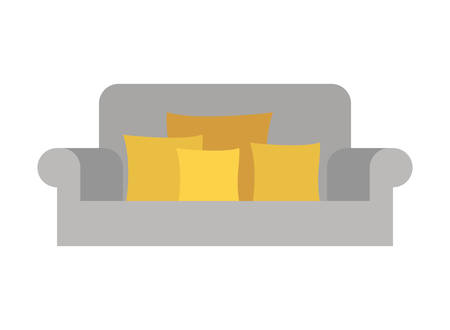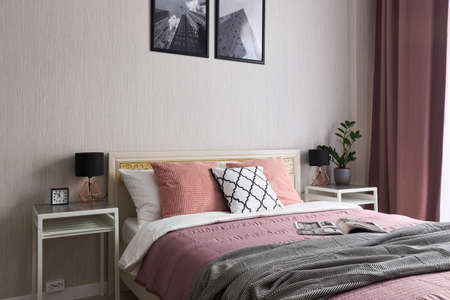Understanding Feng Shui: Its Relevance in the Modern UK Context
Feng Shui, an ancient Chinese practice, centres on harmonising individuals with their environment to promote well-being, prosperity, and balance. At its core, Feng Shui considers the flow of energy—known as “Qi”—and how the arrangement of spaces influences our lives. While these principles originate from East Asian culture, they have found resonance globally, including in the United Kingdom. The challenge lies in interpreting and adapting Feng Shui’s concepts for British homes, which often feature unique architectural styles such as Victorian terraces, semi-detached houses, and compact flats. Unlike traditional Chinese homes designed with cardinal orientation in mind, British housing is shaped by historical urban planning, climate considerations, and space constraints. Nevertheless, key Feng Shui fundamentals—such as mindful bedroom orientation and strategic bed placement—can be meaningfully incorporated into UK interiors. By acknowledging local cultural nuances and the typical British housing landscape, homeowners can adopt a more holistic approach to sleep quality and overall well-being through a modern Feng Shui perspective.
2. The Importance of Bedroom Orientation in Feng Shui
From a Feng Shui perspective, the orientation of your bedroom is fundamental to establishing a balanced and restorative environment. In the UK, where daylight hours and weather patterns differ markedly from other regions, the direction your bedroom faces can notably affect both energy flow (Qi) and overall sleep quality. Analysing these factors through a local lens helps tailor Feng Shui principles for British homes.
Compass Directions: Energy Flow and Cultural Considerations
The four cardinal points—North, East, South, and West—each carry distinctive energies in classical Feng Shui theory. However, in the UK, these directions also interact with unique climatic conditions and daylight cycles. The table below synthesises how different orientations may influence the bedroom environment:
| Bedroom Orientation | Feng Shui Energy Attributes | UK-Specific Implications |
|---|---|---|
| North-Facing | Calm, introspective, stable | Less natural light; cooler temperatures; ideal for those sensitive to heat or seeking a tranquil retreat |
| East-Facing | New beginnings, vitality, growth | Morning sunlight; energising start to the day; beneficial for early risers or those combating seasonal affective disorder (SAD) |
| South-Facing | Warmth, abundance, activity | Maximum daylight; warmer throughout the year; may require blinds/curtains to regulate brightness during summer months |
| West-Facing | Culmination, reflection, creativity | Afternoon/evening sun; can cause overheating in summer; pleasant for those who enjoy sunset light but may disrupt evening wind-down routines |
The Role of Local Climate and Daylight Patterns
The UKs northern latitude means pronounced variation in sunrise and sunset times across seasons. For example, Scottish bedrooms may experience extended daylight in summer and short days in winter, while southern England enjoys milder transitions. Considering these fluctuations allows homeowners to align their bedrooms with personal routines and well-being needs. Selecting an orientation that matches lifestyle—such as an east-facing room for early productivity or north-facing for restful darkness—can enhance sleep quality by working harmoniously with local environmental cues.
Summary: Applying Feng Shui Orientation Principles in UK Homes
To optimise bedroom energy flow according to both Feng Shui wisdom and British living conditions, assess how compass direction impacts light exposure, temperature regulation, and daily rhythms. This rational approach ensures that your bedroom supports restful sleep while respecting the realities of UK weather and culture.

3. Bed Placement: Balancing Tradition with Practicality
Feng Shui offers several classic guidelines for bed placement, emphasising the importance of positioning for optimal rest and positive energy flow. Traditionally, the bed should be placed in the “command position,” meaning that when lying in bed, you can see the door without being directly in line with it. This arrangement symbolises a sense of security and control over your environment, both of which are believed to enhance relaxation and sleep quality. Additionally, Feng Shui discourages placing the bed under a window or directly opposite the door, as these positions are thought to invite restlessness or disrupt personal energy.
However, British homes—particularly terraced houses, Victorian conversions, and new-build flats—often present unique challenges due to their compact layouts and irregular room shapes. Many bedrooms have limited wall space or awkward alcoves caused by chimneys, built-in wardrobes, or bay windows. Implementing Feng Shui principles therefore requires a degree of flexibility and practicality. Where ideal placement is not possible, subtle adjustments can be made: for example, if the bed must be positioned under a window due to space constraints, heavier curtains or blinds can be used to create a sense of solidity and privacy. Similarly, using a sturdy headboard helps compensate for beds placed against less-than-optimal walls.
For those dealing with particularly small rooms—a common situation in urban UK settings—it may not be feasible to maintain perfect symmetry around the bed or avoid all potential energy disruptions. In such cases, prioritise clear pathways around the bed and avoid clutter beneath it to support good air circulation and mental calmness. While strict adherence to traditional guidelines may not always be practical in British bedrooms, adapting core Feng Shui concepts with sensitivity to local architecture allows you to maximise comfort and foster restful sleep within real-world constraints.
4. The Science Behind Sleep Quality
Modern research has increasingly confirmed what ancient Feng Shui principles have advocated for centuries: the way a bedroom is oriented and arranged can have a measurable impact on sleep quality. From a scientific perspective, several environmental factors—including room orientation, exposure to natural light, and furniture placement—directly influence psychological well-being and physiological processes tied to restful sleep. These insights not only align with traditional wisdom but also provide practical guidelines relevant to homes in the UK.
The Role of Light Exposure
One of the most significant determinants of sleep quality is exposure to natural light. Bedrooms facing east allow for gentle morning sunlight, which helps regulate circadian rhythms—a biological process controlling sleep-wake cycles. In contrast, west-facing rooms often receive evening light, potentially delaying melatonin production and making it harder to fall asleep at night. This mirrors Feng Shui’s emphasis on harnessing beneficial energy flows through optimal orientation.
Bedroom Orientation and Light Impact Table
| Orientation | Light Exposure (UK context) | Potential Sleep Impact | Feng Shui Parallels |
|---|---|---|---|
| East-facing | Morning sunlight | Supports early waking, enhances alertness | Encourages vitality and balance |
| West-facing | Evening sunlight | May delay sleep onset, disrupts body clock | Can hinder restful Qi flow |
| North-facing | Softer, consistent light | Aids in maintaining stable routines | Promotes calmness and stability |
| South-facing | Strong daylight throughout day (in UK summer) | Risk of overheating, may disrupt comfort | Requires balancing elements for harmony |
The Psychology of Arrangement and Clutter
Poor bed placement—such as positioning the bed directly in line with the door or under a window—can lead to feelings of vulnerability or restlessness according to both psychology and Feng Shui. Research indicates that cluttered or chaotic environments increase stress levels, negatively affecting sleep latency and depth. A thoughtfully arranged room, free from unnecessary distractions and clutter, promotes relaxation and signals safety to the brain.
Key Scientific Insights Aligned with Feng Shui Wisdom:
- Cognitive Load Reduction: Minimalist spaces reduce mental workload, making it easier to unwind before bedtime.
- Sensory Regulation: Controlling noise, temperature, and light mirrors Feng Shui’s focus on environmental balance.
- Sensations of Safety: Beds placed with a clear view of the door but not directly aligned are linked with lower anxiety levels—a core principle in both psychology and Feng Shui.
Summary Table: Bedroom Setup Factors & Their Effects on Sleep Quality
| Setup Factor | Psycho-Scientific Effect | Feng Shui Principle Connection |
|---|---|---|
| Natural Light Orientation | Circadian rhythm regulation; improved mood & alertness | Harnessing positive Qi through directionality |
| Tidy Arrangement & Minimal Clutter | Lowers cognitive stress; eases sleep onset | Smooth energy flow; promotes tranquillity |
| Bed Position (relative to door/windows) | Senses of security; reduces nocturnal anxiety | The ‘command position’ for restful sleep |
| Sensory Comfort (noise/temp/light control) | Diminishes disturbances; deeper restorative sleep | Cultivating harmony through balanced elements |
In summary, scientific evidence substantiates many Feng Shui recommendations: optimising bedroom orientation and arrangement in UK homes isn’t just about tradition—it’s about fostering genuine improvements in health and well-being through better sleep quality.
5. Tips for UK Residents: Integrating Feng Shui for Better Sleep
Applying Feng Shui principles to your bedroom in the UK need not be an overwhelming exercise; rather, it is about making thoughtful adjustments that respect both the tradition and your daily life. Here are some practical, culturally relevant tips for optimising bedroom orientation and bed placement within the context of British homes and routines.
Consider Typical UK Architectural Features
British homes often feature smaller bedrooms, bay windows, radiators beneath windows, and built-in wardrobes. It’s important to work with these elements instead of against them. For instance, avoid placing your bed directly under a window, as this is considered unfavourable in Feng Shui due to potential energy loss and draughts—something especially relevant in the UK climate. If space is tight, use heavier curtains or headboards to create a sense of security and support.
Optimise Bed Placement
The “command position” is a central tenet of Feng Shui: place your bed so you can see the door while lying down, without being directly in line with it. In many British homes, this means positioning the bed diagonally from the door or along a solid wall. Avoid having the bed share a wall with a bathroom or directly facing mirrors, which can disrupt restful energy. If space constraints make ideal placement impossible, subtle remedies like screens or furniture can help redirect energy flow.
Align with Cardinal Directions Thoughtfully
Traditional Feng Shui suggests aligning the headboard towards favourable directions (often east or southeast for health and vitality). However, given the UK’s varied building orientations and limited flexibility in older properties, prioritise comfort and practicality alongside directional recommendations. Use a compass app to identify directions if you wish to incorporate this layer of alignment.
Embrace Softness and Natural Materials
The UK’s cool, damp climate makes warmth and cosiness essential for good sleep. Select bedding, curtains, and rugs made from natural fibres such as wool or cotton to foster a nurturing atmosphere. Choose calming colours—soft blues, greens, or neutral earth tones—to reflect both Feng Shui wisdom and British aesthetic sensibilities.
Declutter Regularly
A clutter-free environment is crucial in both Feng Shui and modern British living. Avoid storing items under your bed; instead, keep only essentials visible to promote clear energy flow and mental calmness. Utilise built-in wardrobes efficiently and donate unused belongings to local charities—a practice aligned with both good energy management and community spirit.
Adapt Rituals to Your Routine
Create bedtime rituals that blend Feng Shui mindfulness with familiar British habits. This could include airing out your room each morning (a nod to both tradition and necessity), using herbal sprays like lavender for relaxation, or enjoying a cup of caffeine-free herbal tea before bed. These small actions reinforce positive associations between your bedroom environment and restorative sleep.
By thoughtfully integrating these Feng Shui guidelines into everyday British home life, you can cultivate a bedroom that supports deep rest while honouring both cultural context and personal comfort.
6. Common Challenges and Solutions
Applying Feng Shui principles to bedroom orientation and bed placement can be particularly challenging for UK residents, given the realities of British homes. Many properties—especially in cities like London, Manchester, or Edinburgh—are compact, feature irregular layouts, or come with rental restrictions that limit structural changes. Below, we analyse these typical difficulties and present practical, adaptable solutions that respect both Feng Shui concepts and the unique constraints of UK living.
Small Bedrooms and Limited Space
British homes often have modestly sized bedrooms, making it difficult to position the bed in an ideal ‘command’ position (diagonally opposite the door, not directly in line with it). In such cases, prioritise maximising clear space around the bed as much as possible. Use low-profile furniture and avoid excessive storage under the bed to promote better energy flow. If full command position is impossible, place a mirror so you can see the door from your bed without being directly in its path—a practical compromise that maintains some sense of security and control.
Irregular Layouts and Architectural Quirks
Older UK properties frequently come with alcoves, sloped ceilings, or awkwardly placed windows and doors. When faced with these challenges, focus on creating symmetry and balance wherever feasible. For example, use matching bedside tables and lamps even if the room itself is asymmetric. If beams or slanted ceilings loom over the bed (considered negative in Feng Shui), soften their impact with fabric drapes or canopy-style netting. These subtle interventions can mitigate harsh lines without requiring structural changes.
Rental Restrictions
Renters are typically barred from making major alterations such as repainting walls or drilling into surfaces. Instead, use removable decor—like artwork or adhesive wall hangings—to introduce calming colours and personal touches that align with Feng Shui recommendations. Portable screens can create separation between sleeping areas and workspace if you’re in a studio flat. Investing in good-quality bedding and maintaining tidiness also enhances positive energy without breaching tenancy agreements.
Flexible Workarounds for Every Situation
The key is adaptability: rather than rigidly adhering to traditional rules, interpret Feng Shui principles through the lens of practicality and British lifestyle realities. Prioritise what’s most manageable—clear pathways, tidy environments, soft lighting—and remember that intent matters as much as precise placement. Even within the constraints of modern UK housing, small mindful adjustments can significantly improve your sleep quality while honouring both cultural context and ancient wisdom.
7. Conclusion: Harmonising Feng Shui with Everyday UK Life
Thoughtful bedroom design, when approached through both a Feng Shui lens and an understanding of modern British lifestyles, can profoundly influence sleep quality and overall wellbeing. While traditional Feng Shui offers a framework for optimising energy flow, its principles gain greater relevance when adapted to the unique architectural features and cultural context of UK homes. By considering factors such as bedroom orientation, natural light availability, and bed placement relative to windows and doors, individuals can create spaces that feel restful and secure. Blending these ancient concepts with practical British sensibilities—like maximising insulation, accommodating smaller room sizes, or respecting historical building layouts—ensures the advice remains accessible and achievable. Ultimately, harmonising the wisdom of Feng Shui with everyday habits encourages not only better sleep but also a deeper sense of comfort and balance at home, demonstrating that mindful design transcends trends and geography.


